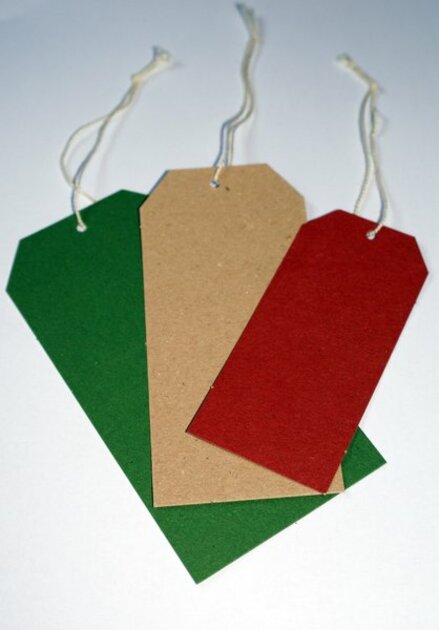
Our Gemara on Amud Beis relates an encounter between Rabbi Gamliel and a heretic:
A certain heretic said to Rabban Gamliel: You, the children of Israel, are a nation whose Master removed [áËalatz] Himself from them, for God has left you in much the same way in which a yavam would perform chalitzah with his yevama, as it is written: “With their flocks and with their herds they shall go to seek the Lord, but they shall not find Him. He has removed [áËalatz] Himself from them [meihem]” (Hoshea 5:6). The heretic tried to use this verse as scriptural support that God has performed chalitzah with the Jewish people.
He, Rabban Gamliel, said to him: Imbecile, does it say: He performed chalitzah to them [lahem]? Rather, it says “áËalatz from them [meihem],” meaning it is as if they, the Jewish people, performed chalitzah on Him. But if a yevama had her shoe removed by her yevamin, does this have any significance? Here too, the meaning of the verse is that the nation of Israel abandoned God by removing themselves from Him, and this abandonment has no significance.
Midrash Tehilim (10:11) also related this story with minor differences. It concludes with a verse from Shir Hashirim (5:6):
æÊø¥ø¡æˆøñøÊæø¯æˆø¥øÇø§æ æøýæ øÇæø æø¯ææø¿æøÇøæ æø¯ææø¿æøÇøæ æø¡æøñøÈæÏ æÂø¡æø¡øæ´ æ øñæÊø¯æˋæøÇæø æø¡ø§æÎø¯æø¡øÈæ æø¯æøñæø¥ø¯æ´øæø¿ æø¥øÇæÏø¥øñæˋæø¯æˆø¥øÇøæææø¥ø æø¯æø¿øÈæ æø¯æÎø¡ææˆøÇøæææø¥ æÏø¯æ´ø¡ææˆøÇøææ æø¯æø¿øËæ æÂø¡æ ø¡ø§æ øÇææ
I opened the door for my beloved, But my beloved had turned and gone.
I was faint because of what he said. I sought, but found him not; I called, but he did not answer.
We have commented a number of times on how the Torah and Midrash metaphorically treat God’s relationship to the Jewish people as a stormy marriage (see Psychology of the Daf, Yevamos 11). However, this story is a new twist, bringing chalitzah into the picture. What might this add, symbolically?
Pashut peshat, Chalitzah is rebuke for an abrogation of the obligation of the brother of the deceased husband) to step up to the plate and carry on his brother’s legacy and home. The verse (Devarim 25:9) states:
æø¯æ øÇæø¥ø¯æˋæø¡ø´æ æø¯æøÇæø¯æˆø¥øÈæø¿ æøçæø¡ææøÛ æø¯æÂøçææ øçøÈæ æøñæø¥ø¯æÏøçæ øÇææø æø¯æø¡æø¯æÎø¡øÊæ æ øñæÂøýææø¿ø æøçæÂøñøÈæ æ´øñæø¯æøæø¿ æø¯æø¡æ´ø¯æÏø¡øæ æø¥ø¯æÊø¡æ ø¡øææ æø¯æÂø¡ø§æ ø¯æˆø¡æø æø¯æø¡øÈæø¯æ´ø¡øæ æø¥ø¡øæø¡æ æøçæÂø¡æˋæøÑøÈæ æø¡æøÇøææˋæ æøýæˋæøÑøËæ´ æø¿æøƒæøÇæø¯æ øÑøæ æøÑæˆøƒæø¥øçøËææˆ æø¡æøÇø§æææ
his brother’s widow shall go up to him in the presence of the elders, pull the sandal off his foot, spit in his face, and make this declaration: Thus shall be done to the man who will not build up his brother’s house!
The symbolism of this is not lost on the mystics who see this as an enactment of enabling the Shekina to return to, and build its house, the Beis Hamikdash. (See for example Likutei Halachos, Even Haezer Hilchos Yibum 3:11 and Avodas Yisrael Pirke Avos 1:13.) Thus, what we have going on in this interlude is that the heretic is saying, “God gave up on you” (It is possible that it was a Christian who was suggesting a need for a new covenant). But Rabban Gamliel said, “No, we distanced God. However, we can no more divorce God than a woman can perform chalitzah. That is to say, her actions are not legal and accomplish nothing. We still wait for God to come back and rebuild our home and He cannot be freed from His commitment despite our rejections of Him.
Later on, on daf 103b the Gemara states a halacha by a house that has leprosy:
æø¥ø¯æø¡æøñæ´ æÏø¯æ´ø¡æ: æÇæø¯æ ø¡æˆøñæË æøÑæˆ æøñæø¥øñæøÇæˆæÇ, æøýæÊøÇææø¥æø¥ æø¥øÇæˋæø¯æÂøñæˆ æ ø¯æˆøÇææÎø¡æ æÏø¡æ´æø¥æ æø¥øñæøÇæˆ.
The verse states: “And he shall break down the house” (Leviticus 14:45), which teaches that even while it is being broken down it is still called a house, until it is totally destroyed. Therefore, although for other purposes, objects that are required to be burned are considered crushed, the verse explicitly teaches that a house confirmed with leprosy is considered intact with regard to its ability to transmit ritual impurity to those who enter it.
Metaphorically speaking, even a broken home is still a home and can be rebuilt.

 Previous
Previous
